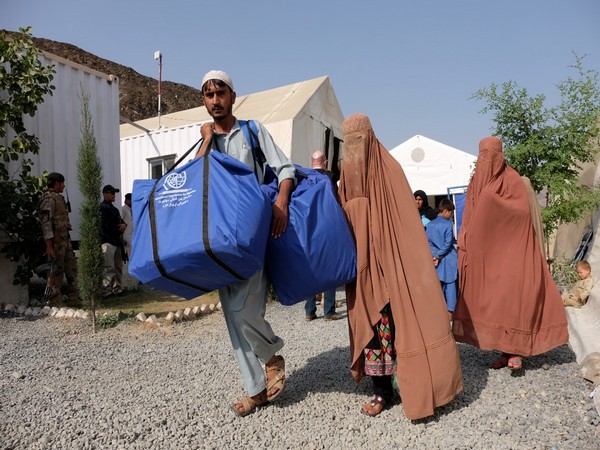Recession risk looms on some Asian economies, Sri Lanka's downturn likely in 2023: Survey
Jul 25, 2022

New York [US], July 25 : Some Asian economies face the risk of recession as rising prices have prompted central banks to increase interest rates, according to a Bloomberg survey released this month.
The economic survey has predicted Sri Lanka's downturn in the next financial year. It states that crisis-ridden Sri Lanka has an 85 per cent probability of falling into recession in 2023, up from a 33 per cent chance in the previous survey.
According to Bloomberg, the probability of recession for several other Asian economies remained unchanged in the survey. Economists who conducted this survey see a 20 per cent chance that China will enter recession, and a 25 per cent likelihood that South Korea or Japan will enter one.
They also raised the likelihood of a recession in New Zealand, Taiwan, Australia and the Philippines to 33 per cent, 20 per cent, 20 per cent and 8 per cent, respectively. The report adds that Central banks in those places have been raising interest rates to tame inflation.
While predicting a slump, the Bloomberg report said that Asian economies have largely remained resilient compared to Europe and the United States.
Steven Cochrane, who is chief Asia Pacific economist at Moody's Analytics Inc, said surging energy prices have hit countries such as Germany and France the most, with a spillover effect impacting the rest of that region.
He said Asia's risk of recession is around 20-25 per cent while the odds of the US entering one is around 40 per cent. Meanwhile, Europe's risk stands at 50-55 per cent.
Last week, the Asian Development Bank (ADB) lowered its economic growth forecast for developing Asia and the Pacific to 4.6 per cent this year due to slower expansion in China, more aggressive monetary tightening in advanced economies, and fallout from the continued Russian invasion of Ukraine.
The outlook compares with a projection of 5.2 per cent issued by ADB in April. The bank also raised its forecast for inflation in the region, amid higher prices for food and fuel.
According to ADB, developing Asia and the Pacific is continuing its recovery from the COVID-19 pandemic, according to ADB's Asian Development Outlook (ADO) 2022 Supplement. Many countries are easing mobility restrictions, which is strengthening economic activity. However, growth has slowed in China, the region's largest economy, due to disruption from new COVID-19 lockdowns, as well as weaker global demand.
"The economic impact of the pandemic has declined across most of Asia, but we're far from a full and sustainable recovery," said ADB Chief Economist Albert Park. "On top of the slowdown in China, fallout from the war in Ukraine has added to inflationary pressure that's causing central banks around the world to raise interest rates, acting as a brake on growth. It's crucial to address all these global uncertainties, which continue to pose risks to the region's recovery."
According to ADB, inflation in developing Asia and the Pacific is predicted to accelerate to 4.2 per cent this year, compared with a previous forecast of 3.7 per cent. However, inflation pressure in the region as a whole is still lower than elsewhere in the world.

















